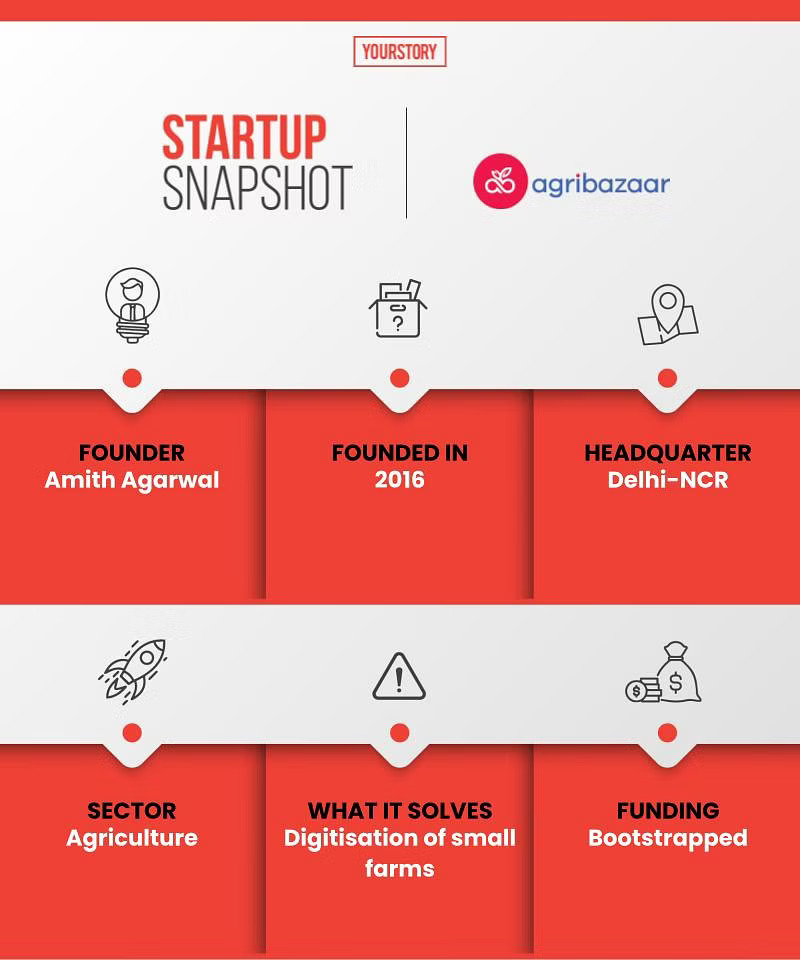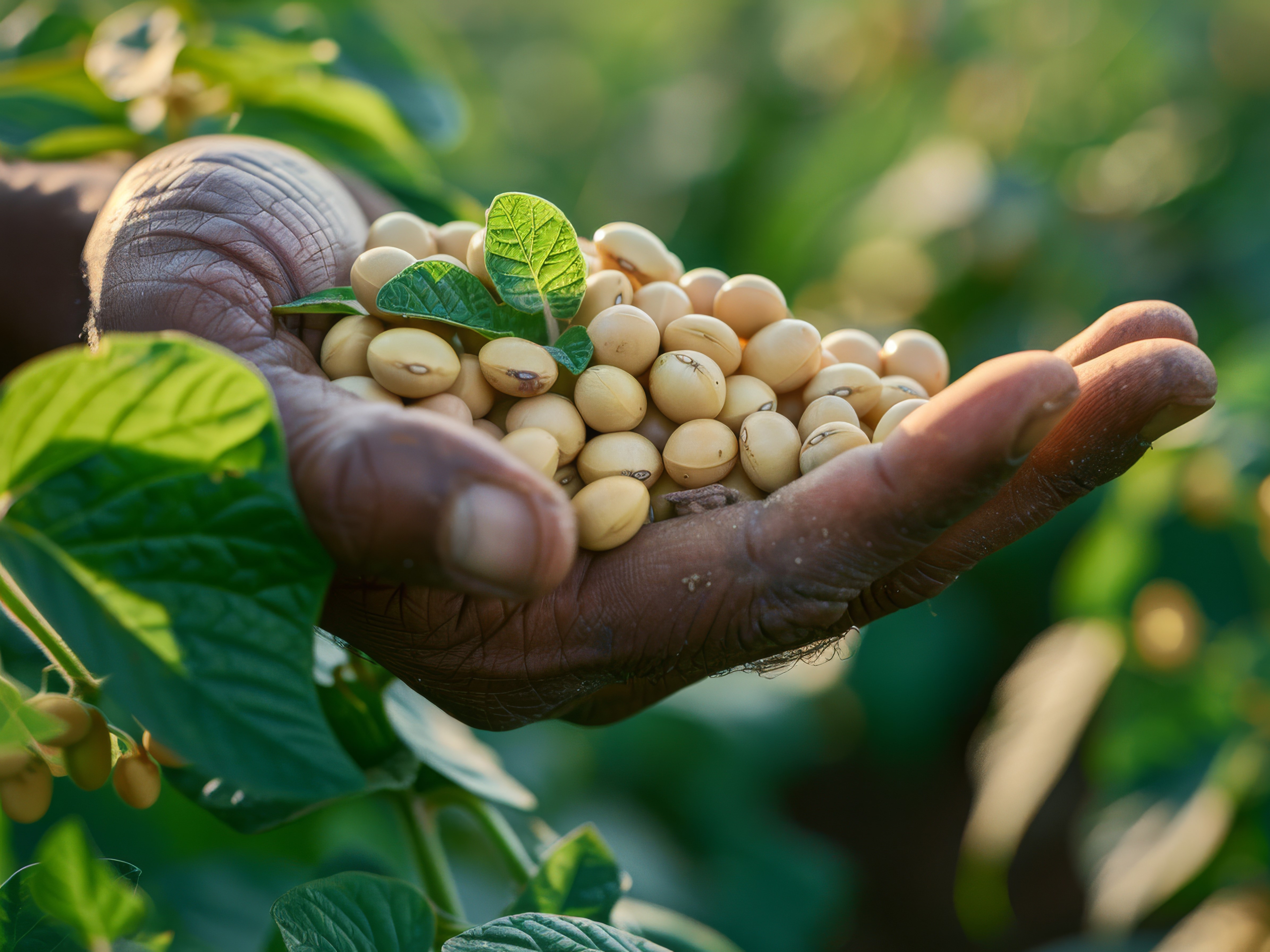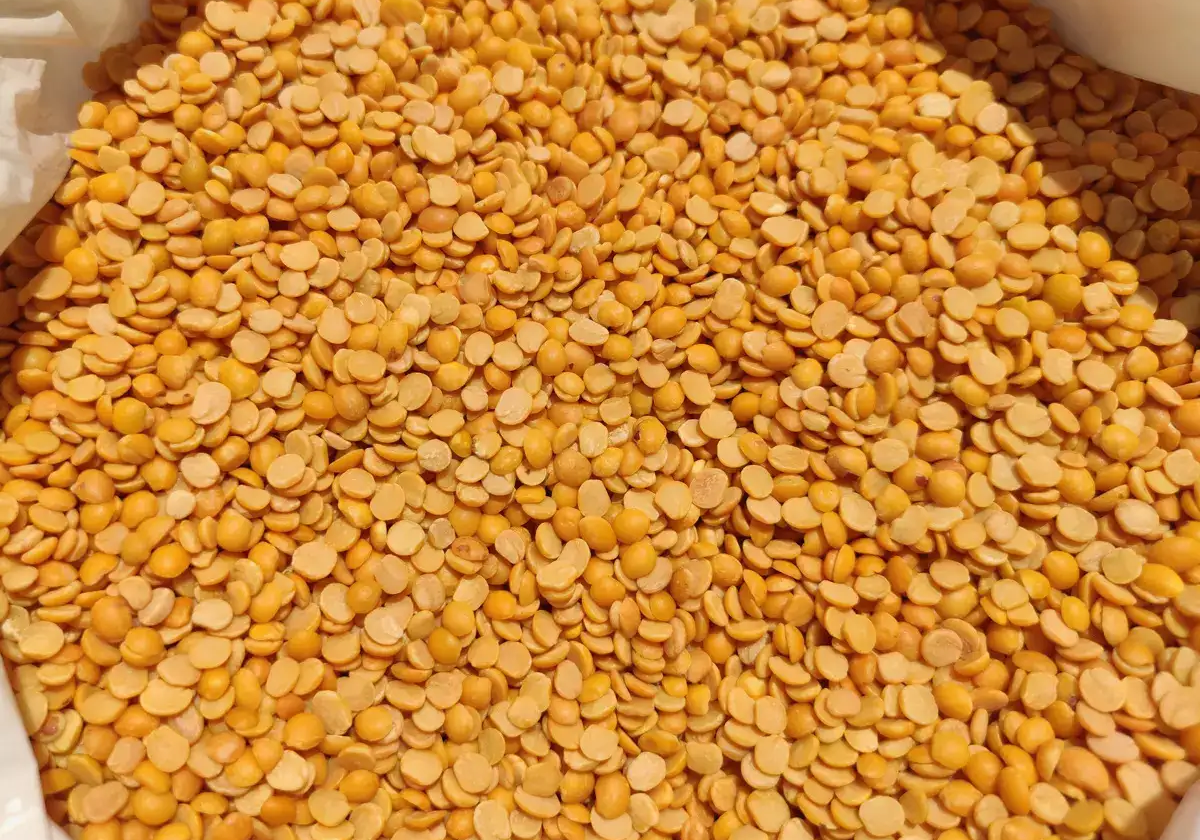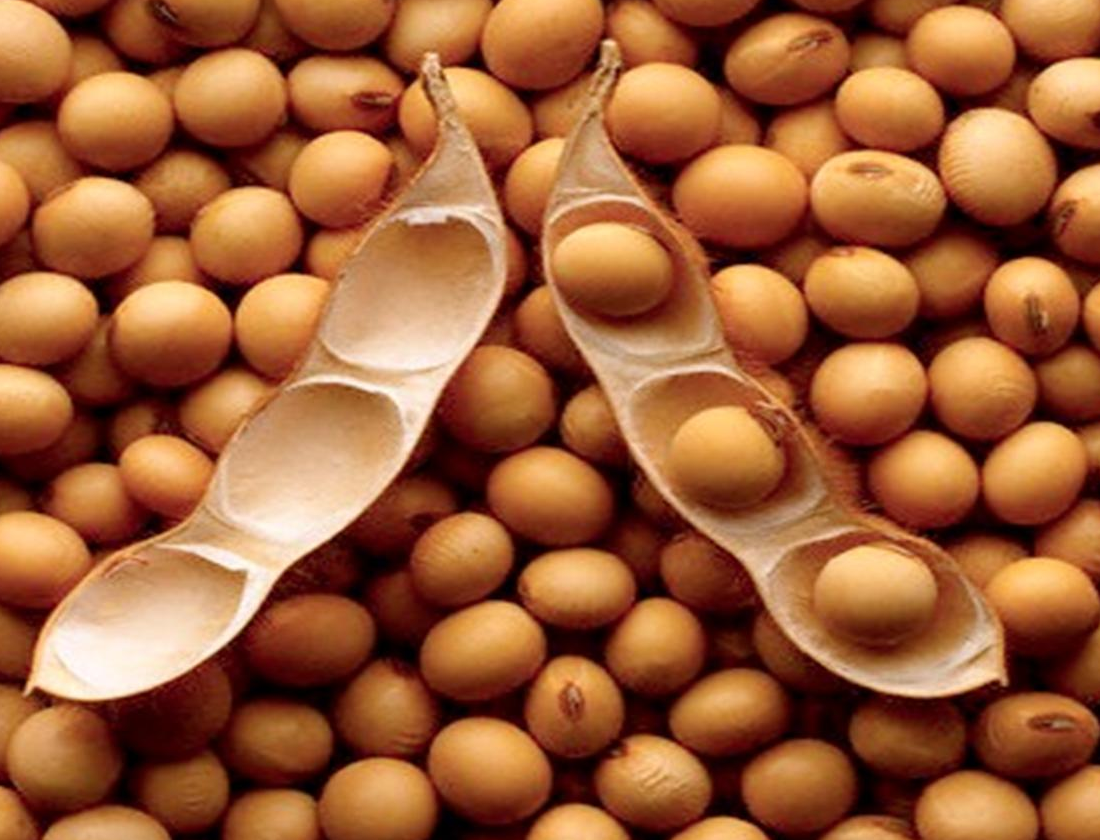For Amith Agarwal, there was nothing new about starting an agritech business. Having founded StarAgri and StarAgri Finance, Amith already had tremendous experience in the field, working with small farmers and agri-communities across India. He and his team had realised that small farm owners generally faced challenges that are disproportionate to their size and resources.
“We noticed that technology providers mainly focus on the needs of large enterprises, so we thought of starting AgriBazaar to focus on small farmers. The idea is to create a level playing field for the 126 million farmers in our country. Our vision is to empower farmers by delivering efficiency, transparency, and traceability in the agri-value chain through technology,” says Amith.
Founded in 2016 in Delhi-NCR, Agribazaar started by building an online platform to connect farmers, traders, banks, enterprises, and governments. In 2017, the team created an award-winning e-wallet — AgriPay — that has facilitated transactions of over $1 billion so far.
Put simply, Agribazaar enables a farmer to sell online through his platform, where once a buyer purchases a product, the platform facilitates the logistics of delivering it to the buyer.
The aggregator model
“Today, we’re leveraging AI-driven insights and analytics to offer customised credit-on-a-click, crop advisory, and more,” says Amith. The platform focusses on transforming the agri-value chain using technology.
“For buyers, we assure quality while mitigating counterparty risk and enabling secure payments through one nation and one market philosophy. Across the agri-value chain, through direct linkages, we bring efficiency, transparency, and traceability like never before. We’re on a mission to empower small farm owners and enhance livelihood. This is key to addressing the global food security challenge,” says Amith.
He adds that they have over three lakh users, 100 FPOs, and 33,000 listed auctions, “Our trade volumes crossed 50,000 tonnes. We’re confident of closing FY21 with a GMV of Rs 20,000 crore. Artificial Intelligence (AI), Machine Learning (ML), Big Data, Internet of Things (IoT), and drones are the tools in our mission,” he remarks.
The platform
Agribazaar has replicated the physical mandi to an electronic e-mandi aggregator mode. Once a farmer registers and uploads his produce, buyers like merchants, traders, and corporates can give orders for purchase. Once the deal is complete, the on-ground staff pick up the produce for delivery from the farmer’s choice of pick-up point to the buyer’s destination.
“In current times, this process is almost contactless. We are at the forefront of helping the Indian farmer connect with buyers digitally while adhering to social distancing norms. We are working closely with farmers, state governments, institutional buyers, and procurement agencies to get farmers to download our app and trade on it from the safety of their homes,” says Amith.
The farmers get their payments online in their bank account within the stipulated time through e-payment methods.
“The initial product, the app, and the backend took about 18 months to put together, but it is a continuous process. We have to keep on adding new features, new commodities, and better the user experience. We have invested in a dedicated engineering and R&D team of about 50 employees, and we will continue with our investments. Other than this, we regularly spend on customer acquisition marketing by entering new states and onboarding more farmers,” says Amith.
The model
Amith explains they started with the idea that a technology-driven platform could help the agri-value chain operate with significantly fewer overheads and reduce the hidden inefficiencies.
“Selling through our platform offers a farmer an average price gain of 8-10 percent. While the gain from fruits is more at around 20 percent, on dry fruits it is over 10 percent. In the grains segment, a farmer gains more than five percent per kg,” says Amith.
Agribazaar is bootstrapped by the parent company, StarAgri, a leading post-harvest solution company, which specialises in warehousing, procurement, and collateral management of agri-commodities in over 15 states in the country. StarAgri, formed in 2006, has received PE funding from Temasek Holding and IDFC Private Equity in the past and controls nearly 800 agri-warehouses in the country.
The Agribazaar team comprises 150 members currently and they aim to add 350 more this fiscal end. The company also plans to expand its geographical coverage to 75 cities from its current 32.
Market and future An EY report states that the agritech market has the potential to reach $24 billion by 2025. According to the report, agritech companies had raised $532 million until April 2020. There are several startups in the same space like – DeHaat, Gramophone, Tartan Sense, Intello Labs, SenseGras, etc. “It is why our platform leverages cutting-edge AI for agri-value chain optimisation, resulting in increased yields and higher profit for small farm owners,” says Amith. He adds that the team is looking to geo-tag every small farm holding in India through technology, and take the first steps towards ‘intelligent’ and ‘custom’ farming. By 2030, 90 percent of Indian farm holding will belong to small farm owners. As of now, Agribazaar is looking at three areas of focus – Apply world-class open-source technology stack, and know-how to transform the agri-value chain through meaningful yet practical and affordable digital interventions Empower the small farmer by focussing on novel solutions for his unmet needs Build partnerships with governments, farmer collectives, and corporate buyers to enable the widest possible access to the platform. “Similar to China, we wish to ride the Indian government’s policy push to provide farmers with technology, credit, capital, and markets, all on a single platform. In doing so, we are capturing vast amounts of farm data. It is helping us create intelligent, predictable and customised value additions — increasing productivity by providing soil, weather and crop advisory to post-harvest offerings like insurance, and storage and credit facilities based on customised farm and farmer records,” says Amit. Amith concludes that he firmly believes that disruptive models of agri-aggregation are required to meet the opportunities and challenges of modern agriculture.








 Connect With Us
Connect With Us